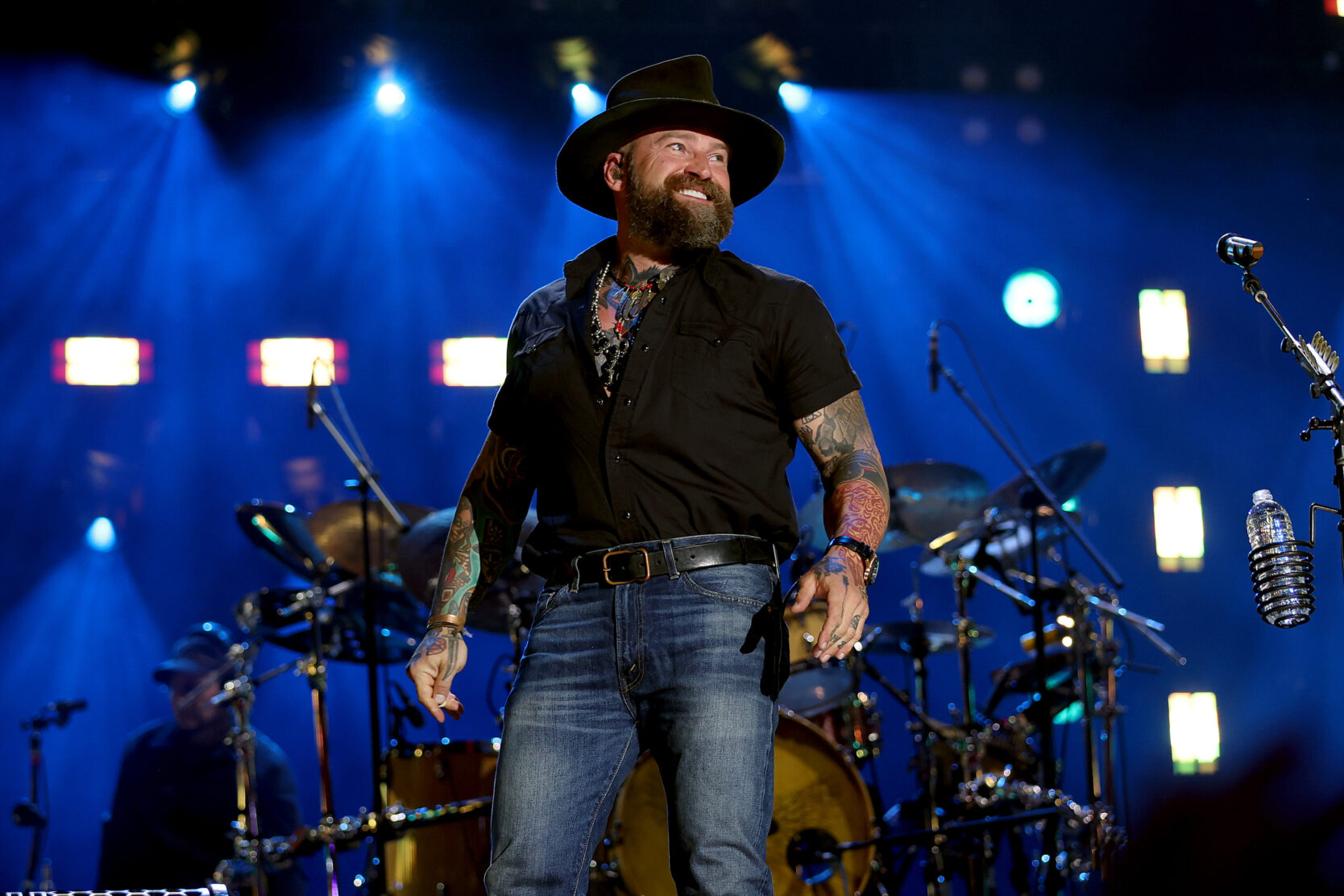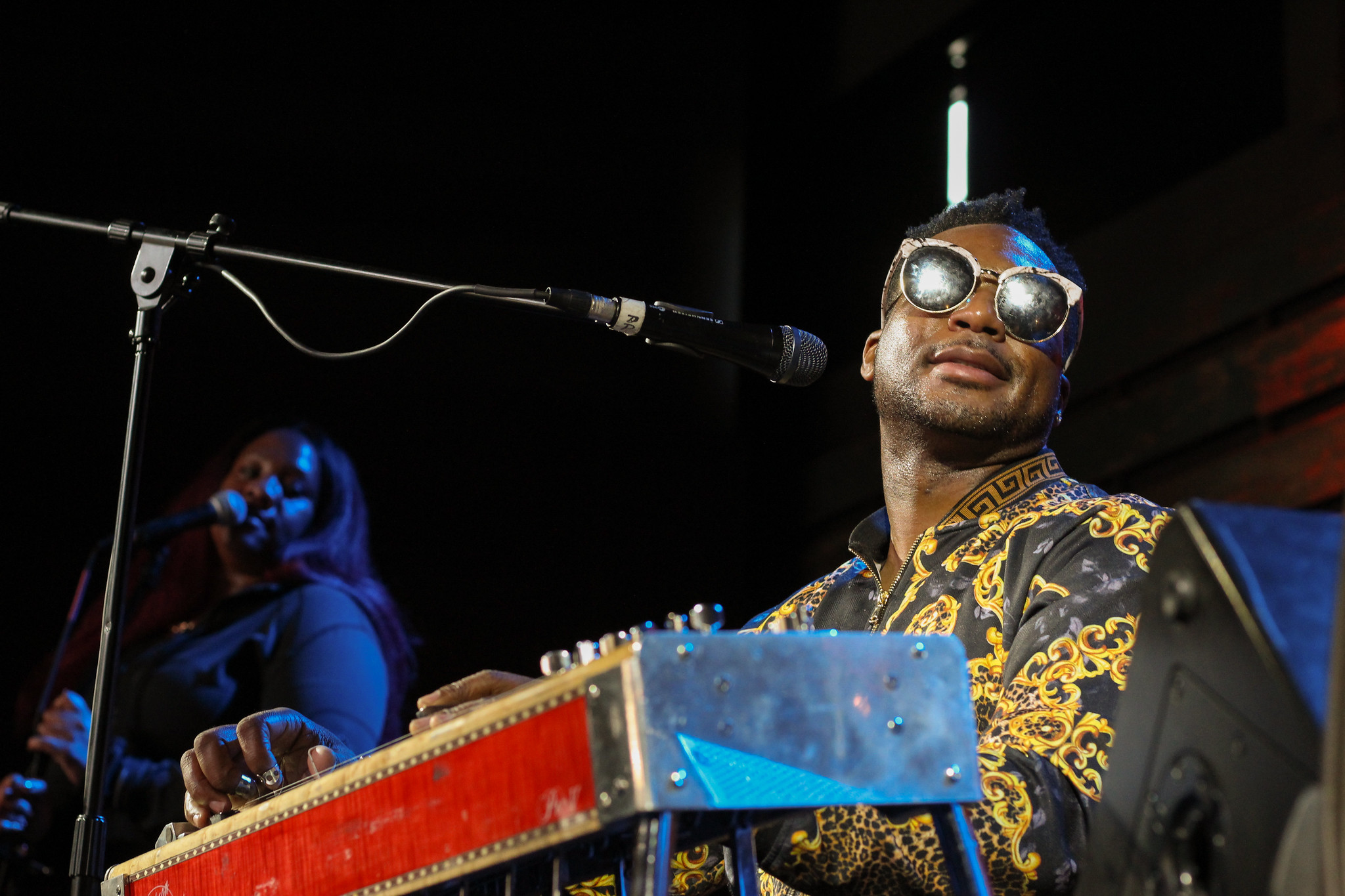When the Zac Brown Band launch into the Who’s “Baba O’Riley,” a highlight on their new double live From the Road, Vol. 1: Covers, you can almost hear the synapses firing in the audience. As violinist Jimmy De Martini plays that familiarly frantic riff against a sine-wave synth pattern, the crowd all seem to recognize the song at the same time, and a roar of applause greets the massive power chords. It’s a moment that speaks to the motivation behind this big bear hug of a covers album: It’s not about reinventing or rearranging these songs, but about reveling in the hits that bring people together.
“I love surprising people when we break out a new cover,” Zac Brown says from his home in Nashville, where he’s working on a new studio album of originals. “It has to be something that we all love that’s been an influence on us, but it’s also got to be something that people are going to recognize and be excited to hear.” For twenty years the Georgia-based band has made covers a hallmark of their marathon concerts, which has helped establish the Zac Brown Band as one of the biggest live draws around. “It gets harder every year because we have to pilfer through a lot more songs to figure out what we’re going to play.”
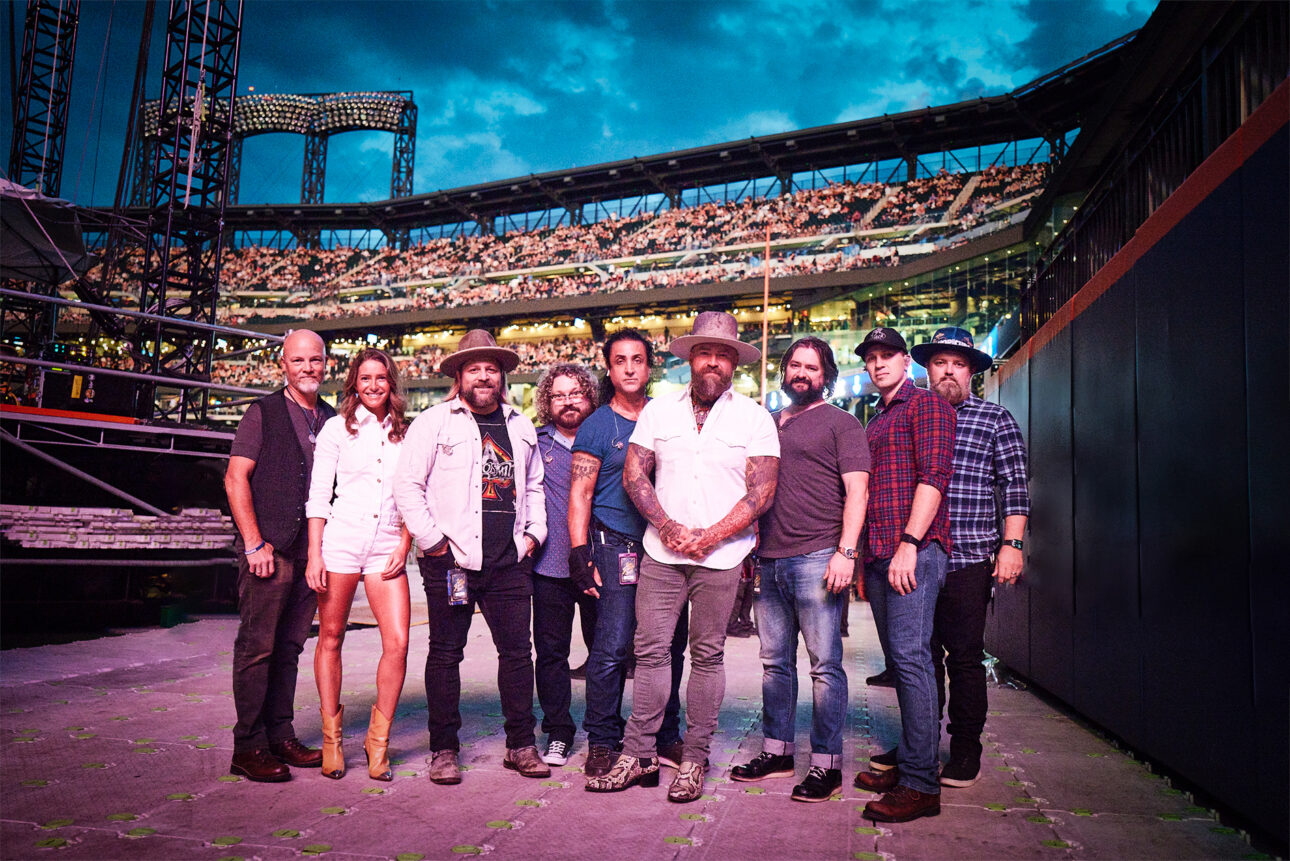
Featuring appearances by Steven Tyler, John Mayer, and Alan Jackson, Covers includes only a handful of truly leftfield covers—in particular, the pop standard “The Way You Look Tonight”—but the point isn’t to pick obscurities or stunt covers. It’s all about finding songs that everybody knows so that everybody can sing along. They recreate Queen’s “Bohemian Rhapsody,” including that complicated bridge. They rumble through the Beastie Boys’ “Sabotage.” They chug through Metallica’s “Enter Sandman.” They ramble through Jimmy Buffett’s “Margaritaville.” Along with Darrell Scott and Mark O’Connor, they deliver a stately roots version of the Beatles’ “Eleanor Rigby.”
The set speaks to the breadth of the band’s influences and abilities, as they toggle between country, bluegrass, southern rock, metal, and jambandery. “It’s got to have arcs,” Brown explains. “It’s got to be a journey. Making the setlist is tricky, and we put a lot of time into making the show flow the right way. We take it very seriously, like a professional athlete would train and practice.”
Just after announcing a 2024 co-headlining tour with Kenny Chesney, Brown spoke to Spin about choosing the perfect covers, the work that goes into harmonizing on “Scaramouche! Scaramouche!” and the joy of watching your violinist rap.
What was the impetus for this project? Why did you want to compile these performances?
[For] the last 15 years, we’ve recorded every live show we’ve ever done. You really can’t understand our band until you come and see us live, because of the work we put into arrangements and cover songs and the energy we share with our fans. I relate it to Bruce Springsteen. I’ve listened to his songs on the radio, but you don’t really understand the Boss until you see him sweating and grinding for three hours and holding the crowd in the palm of his hand. We’re like that as well. So it was exciting to put out a live covers album because people who’ve only heard our songs on the radio get a glimpse of what we can do live, what the band is capable of. It’s a big deal to share what we do live with people who haven’t been to a show yet.
That’s a good point. It’s not just a covers album. It’s a live album.
We love that kind of thing. Every time we come to a city, we have a new show with new covers, and we reimagine our own songs as well. It’s always exciting when we have rehearsals going into a new tour. We spend a few weeks putting the show together and arranging the songs. And this is just Volume 1. We will have several more volumes to put out over the years. This was just our first stab.
It does show the versatility of the band, going from classic rock to metal to pop standards.
Our band can play anything. We can play swing, we can play heavy metal, we can play jazz. That allows us to throw some curveballs at the audience and play something people might not expect, like Beastie Boys or Rage Against the Machine. It’s just a snapshot of what we’re capable of as a band. And having Darrell Scott out on the road with us just made us better. He’s one of my favorite troubadours in the world, and such an incredible writer. Having him playing with us every night was amazing. Doing “Eleanor Rigby” every night with him and Mark O’Connor was incredible. It made us better.
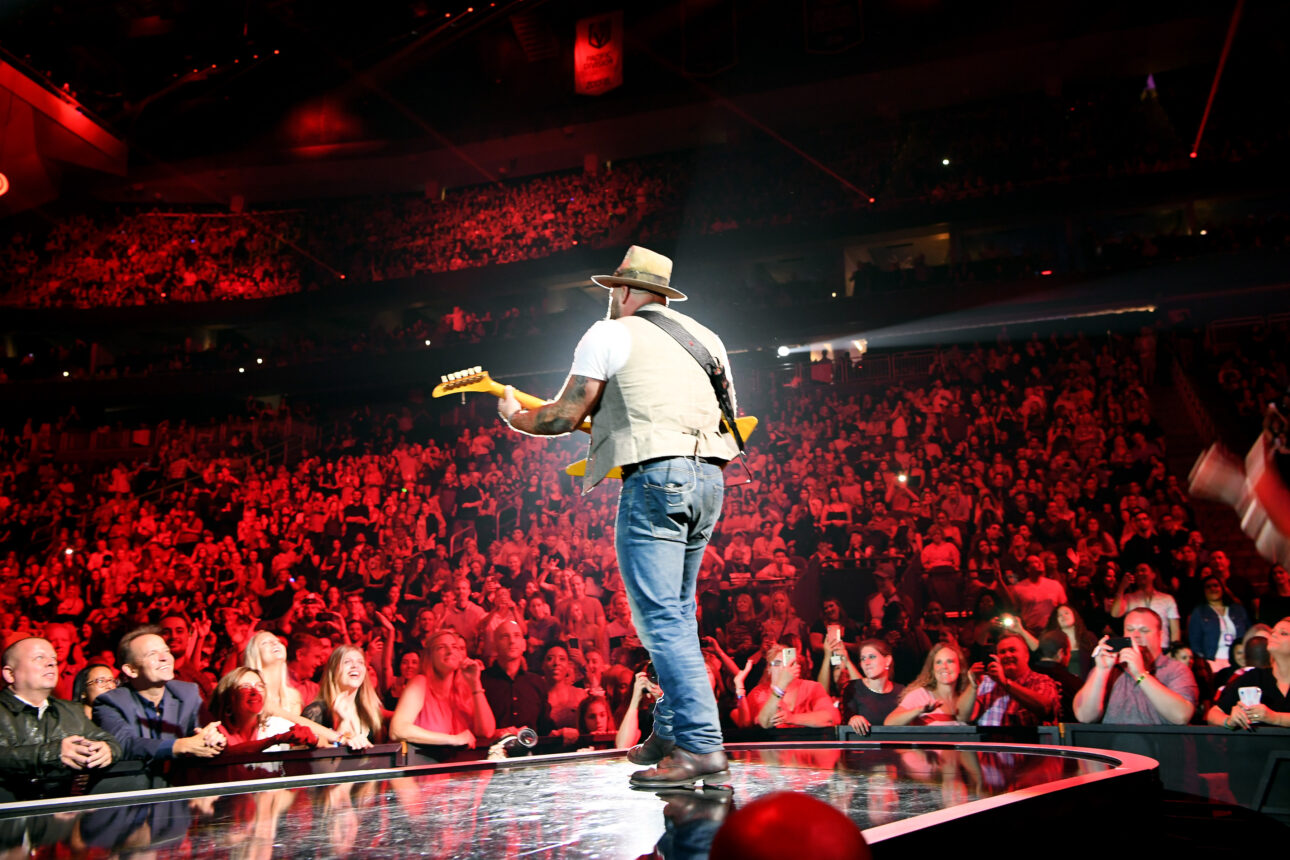
What was your criteria for picking songs to cover?
We tried to pick a good selection of stylistically different songs that could take people on a journey, but we’re also picking songs that mostly everyone in the crowd is going to know. Then we reimagine the originals and try to make them our own. It takes some time, because we have to break it down and figure the song out. After we get it down in rehearsals, we listen back to the tapes and figure out what else is needed and how to adjust things. Freddie Mercury did 70 vocal tracks on the middle section of “Bohemian Rhapsody.” We had to figure out how to do that onstage, with five of us singing and covering the parts that needed to be covered. And Queen never performed that part of the song live. They always played a video of it. We spent a year messing with the arrangement before we felt we could play it live. But we’ve dedicated our lives to what we do, so live is really when we’re at our best. You can’t fake chemistry and momentum and culture. You have to build those things. That’s what we’re trying to do. We put in the time.
If you’re playing “Bohemian Rhapsody” in its entirety, then you’re obviously not backing down from a challenge.
It’s incredibly hard. Creating the vocal parts was the hardest part, not just working them out but locking in together and giving them some energy. But it’s great to see an entire stadium full of people jumping up and down when it starts to rock at the end. It’s a great testament to Queen. Their label told them that the song would never work, but it’s one of the greatest songs ever. If you don’t have the courage to fight for what you feel is going to work, then you’re going to have some suit in an office somewhere tell you that it’s not going to work because there’s nothing else like it. An artist has to know who they are and what they want to do. I’m grateful that we don’t have to pretend like we’re something else. We don’t have to do that dance. There’s nobody telling us what we have to do, and it’s up to us to decide what’s going to connect with our people and bring them in.
Are there covers that you start working on but have to abandon?
For sure. In rehearsals we’ll try them out, and if I’m not feeling it, we’ll move on to the next one. It’s got to resonate. But the good thing is, I can feel it when we’re playing something and people are going to connect with it. We can usually tell when something is going to translate well.
How far back do you go with these covers? What sorts of memories are attached to the originals?
I’ve been a music fan since I was super young. You long to be inspired. You long to hear a song that’s really going to move you. I feel like songs are really the last usable form of American poetry. And when you connect the right melodies and harmonies with the right story, you hope to make other people feel something. That’s what I look for as a music fan as well. So the songs we cover are obviously songs that have meant a lot to us and have influenced us in some way or another. I remember growing up listening to Frank Sinatra. Any party—whether it’s a dinner party or whatever—it’s going to be a little bit cooler when you put Frank’s music on. So it’s good knowing that our band is capable of playing anything, including Sinatra.
Tell me about the “Sabotage” cover. That’s not you rapping, is it?
We had mentioned maybe learning “Sabotage,” but when we came together for rehearsals, I just hadn’t learned it. But [fiddle player] Jimmy de Martini knew it. That’s the first time we’ve ever given him a lead vocal on anything, and he just absolutely murders it. He can be pretty reserved when he’s playing or singing harmony, but when we gave him center stage, he came through. We had no idea Jimmy could rock like that. I do try to let everyone in the band sing a song. We do a medley where everyone gets a turn. I’ve got such incredible players, and I love seeing what they can do. Caroline Jones has been singing Whitney Houston’s version of “I Will Always Love You,” and it’s incredible. There aren’t many people who can sing that song, but she does it so beautifully.
How does that change your relationship with your own material? Does having new stuff help with having to play some of your own songs night after night?
We have to play a good bit of our hits every show, just so people aren’t disappointed that they didn’t get to hear that song. And we play three-hour shows, so we’re able to fit in a lot. But we make sure to keep it true to form. I remember going to see Counting Crows years after they’d had a lot of success, and they’d completely changed the melodies of their songs, to the point where you couldn’t even recognize the chorus anymore. I realize there are some artists who need to keep it interesting for themselves, but we try to keep the fan in mind with what we’re doing and how we’re doing it. It’s important not to bastardize your hits so much that people can’t sing along anymore. And I love Counting Crows. Don’t get me wrong. I’m not hating on that band, but I did learn a lesson listening to them.
Is it hard keeping it new for you and the band, where you’re not just going through the motions onstage?
Well, every three years we make a new Zac Brown Band record, but for a year and a half in between, we want to experiment. I want to make a solo record. I want to make something that has other properties to it. That doesn’t mean giving less to the band, but if there’s music I want to create, I’m going to create it. I even named one of the albums The Controversy because I knew it was going to be controversial. I spent a lot of time traveling and working with all of these amazing producers outside the country genre. If I’m going to work with Skrillex, what we make is going to be very different than what I make with the band. You face a lot of scrutiny, and there are people who will hate you because you created something different than what they expected.
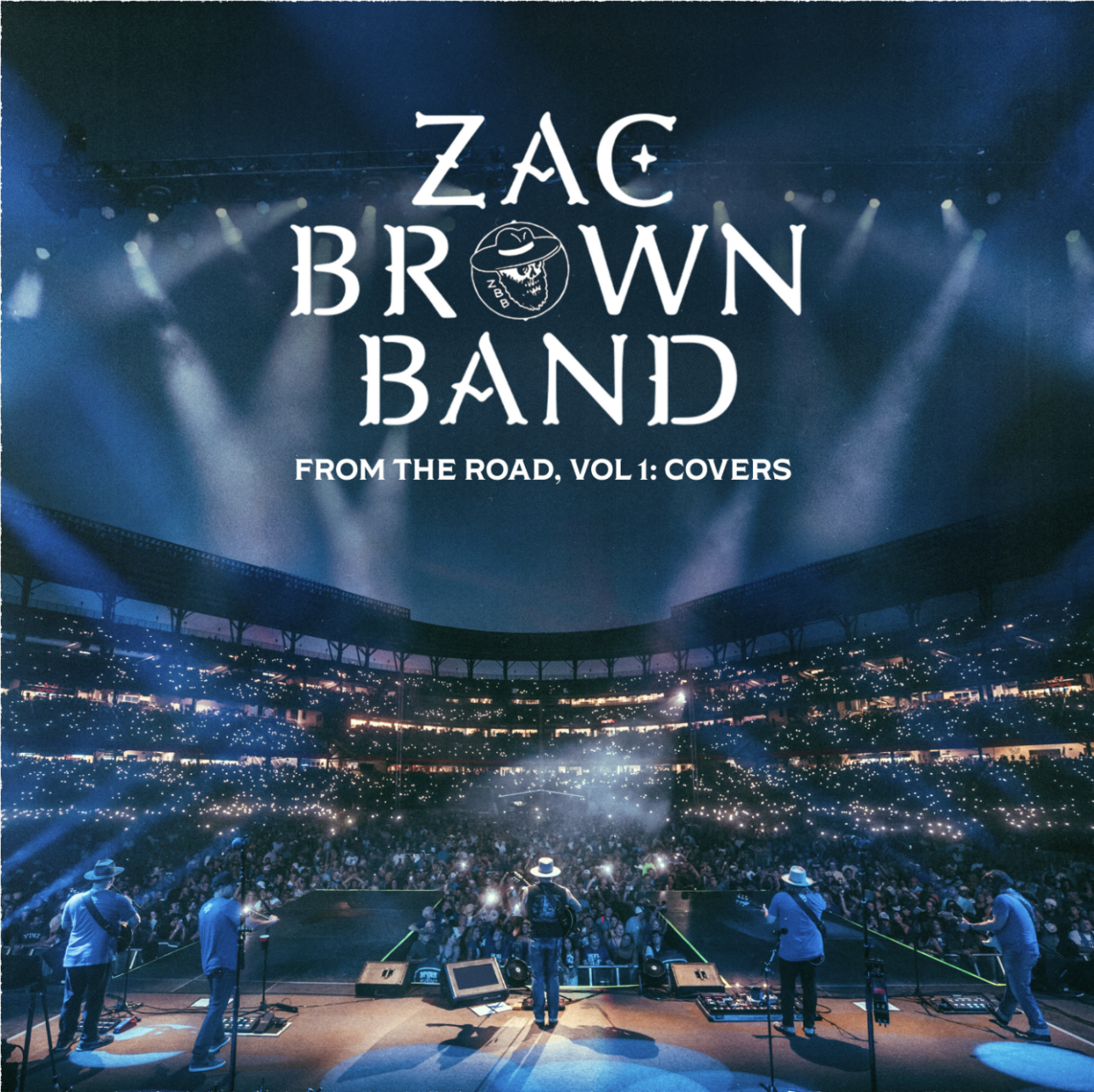
Is that more difficult as a country artist?
A lot of country fans are purists, and I get that. But I want to create things that I feel driven to create and not apologize for it. But any time you’re creating, you’re basically naked on a fence and people are free to throw tomatoes at you. You have to be brave to be yourself. But there’s a great movement of people now…like Zach Bryan. He wasn’t made by radio. He made it by being who he is. He’s built a massive following and sells a lot of tickets because he has an identity and isn’t afraid to be himself and continue that journey.
What are some of your own favorite covers by other people?
Dave Matthews Band did a version of “Burning Down the House,” by Talking Heads. I absolutely loved it. And their version of “All Along the Watchtower,” too. Ray Charles did that whole album of country songs when nobody would have expected him to go down that avenue. But it creates something new when he interprets those songs. One of my favorites lately is by this girl named Billianne. She did a version of “Simply the Best,” the Tina Turner song. She did an acoustic cover, and it put the song in a completely different light for me. I had never really listened to the lyrics before. There are some incredibly brilliant lyrics in that song, and I’d never heard them until I heard her version. She also does a great cover of “Que Sera.” Some people have a knack for reinterpreting things and making them sound new, and that’s what you seek out.

